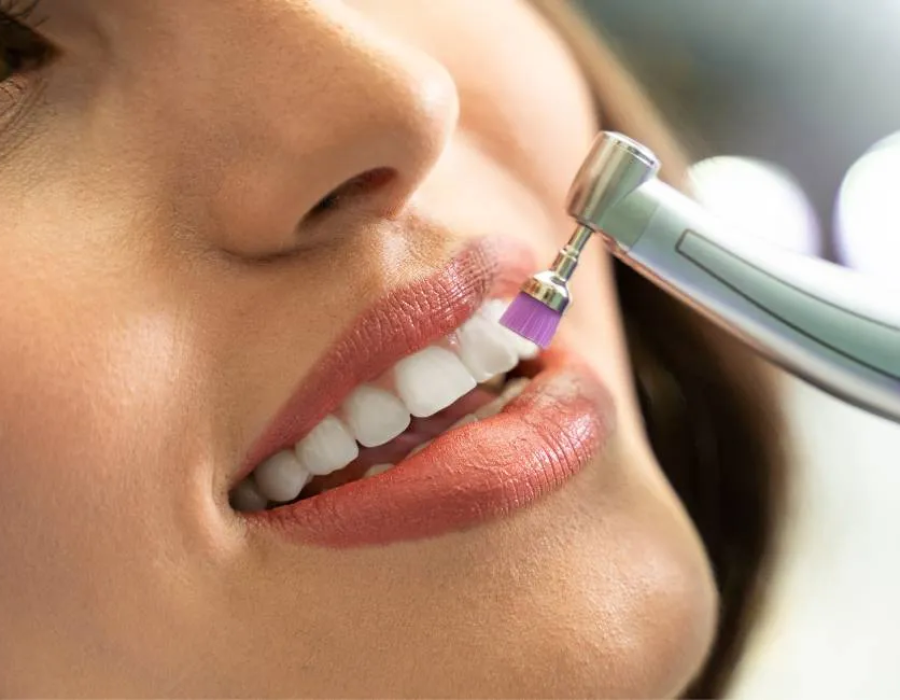Professional dental cleanings are essential for maintaining optimal oral health and a confident smile. While many people are familiar with plaque removal and tartar scraping, the final stage—teeth polishing—is often overlooked despite its importance. Patients who receive Teeth Polishing & Scaling In Dubai benefit from both thorough cleaning and a polished finish that contributes to a healthier mouth and a brighter appearance. But what exactly is teeth polishing, and why does it come last in a dental cleaning session?
Understanding Teeth Polishing:
Teeth polishing is a dental procedure that smooths and cleans the outer surfaces of the teeth after plaque and tartar have been removed. It typically involves the use of a soft rubber cup and a mildly abrasive polishing paste. This technique removes surface stains caused by food, beverages, and lifestyle habits like smoking. Polishing not only enhances the cosmetic look of the teeth but also plays a preventive role by making it harder for plaque to accumulate on the newly smoothed surfaces.
The Role of Scaling Before Polishing:
Before polishing can take place, scaling must be performed to eliminate hardened deposits of plaque and tartar from the teeth and gums. Scaling reaches areas below the gum line, where harmful bacteria can cause inflammation and periodontal disease. Without scaling, polishing would be largely cosmetic and ineffective in achieving complete oral hygiene. The combination of the two procedures ensures that both visible and hidden threats to oral health are addressed.
Why Polishing Comes Last:
Polishing is the final step in a dental cleaning because it builds upon the work done during scaling. After tartar and plaque have been removed, the tooth surfaces may feel rough or uneven. Polishing smooths these surfaces, removing any residual stains or debris and leaving the teeth clean and glossy. It enhances the patient’s comfort and satisfaction while also supporting longer-lasting cleanliness by discouraging new plaque from easily adhering.
Aesthetic Benefits of Teeth Polishing:
Although polishing does not whiten teeth in the way that bleaching treatments do, it significantly improves their appearance. It removes external stains from coffee, tea, red wine, and tobacco, giving the teeth a brighter and fresher look. For many patients, this immediate improvement in appearance is a motivating factor for regular dental cleanings. A polished smile often feels cleaner and looks more radiant, contributing to improved self-confidence.
Health Benefits Beyond Appearance:
Teeth polishing offers more than just cosmetic improvements. By eliminating bacterial biofilm and smoothing the enamel, it plays a role in reducing the risk of future plaque buildup and gum irritation. Smooth surfaces are more difficult for bacteria to cling to, which helps maintain a healthier oral environment between visits. This is especially beneficial when combined with good at-home oral hygiene practices.
Common Techniques Used in Polishing:
Dentists and hygienists can choose from several polishing methods depending on the patient’s needs. The most common is rubber cup polishing, which involves a slow-speed handpiece, a polishing cup, and an abrasive paste. Air polishing, which uses a jet of compressed air, water, and fine powder, is another option that is particularly effective for removing stubborn stains. Each technique has its place and may be recommended based on stain severity or patient sensitivity.
When Polishing May Not Be Recommended:
While polishing is generally safe and beneficial, there are instances where it may be avoided or limited. Patients with sensitive teeth, exposed dentin, or certain enamel defects may be advised to skip polishing or opt for a gentler method. In such cases, dentists will tailor the procedure to the individual’s condition to ensure comfort and avoid unnecessary enamel wear. Personalizing care ensures optimal outcomes without compromising dental health.
Frequency of Polishing as Part of Routine Care:
Most dental professionals recommend polishing as part of a routine cleaning every six months. However, this frequency may vary based on a patient’s oral health, habits, and lifestyle. People who consume staining substances frequently or have higher tartar buildup may benefit from more regular cleanings. Patients undergoing Teeth Polishing & Scaling In Dubai often receive personalized advice based on their dental history and current condition.
What to Expect After Polishing:
After polishing, teeth often feel exceptionally smooth and clean. There may be a mild minty or gritty taste from the polishing paste, but this subsides quickly. In most cases, patients experience no discomfort. Any minor sensitivity typically disappears within a day. To maintain the effects of polishing, dentists recommend avoiding dark-colored foods and beverages for a few hours and maintaining a strong oral hygiene routine at home.
Choosing a Clinic for Teeth Polishing & Scaling In Dubai:
Dubai is home to many advanced dental clinics offering professional cleaning services. When choosing where to undergo Teeth Polishing & Scaling In Dubai, patients should look for clinics with qualified professionals, modern equipment, and a track record of patient satisfaction. A reliable clinic will not only provide thorough cleanings but also offer clear explanations of each procedure and tailored advice for long-term care. Choosing the right provider ensures both comfort and lasting results.
Final Thoughts:
Teeth polishing may seem like a minor step, but it plays a crucial role in completing the dental cleaning process. It enhances the appearance of your smile, smooths enamel surfaces, and contributes to ongoing oral health by making it harder for bacteria to accumulate. When combined with scaling, polishing ensures a comprehensive clean that supports both health and aesthetics. Whether you're maintaining a routine or addressing specific concerns, scheduling regular Teeth Polishing & Scaling In Dubai is a smart step toward a cleaner, brighter, and healthier smile.






Comments